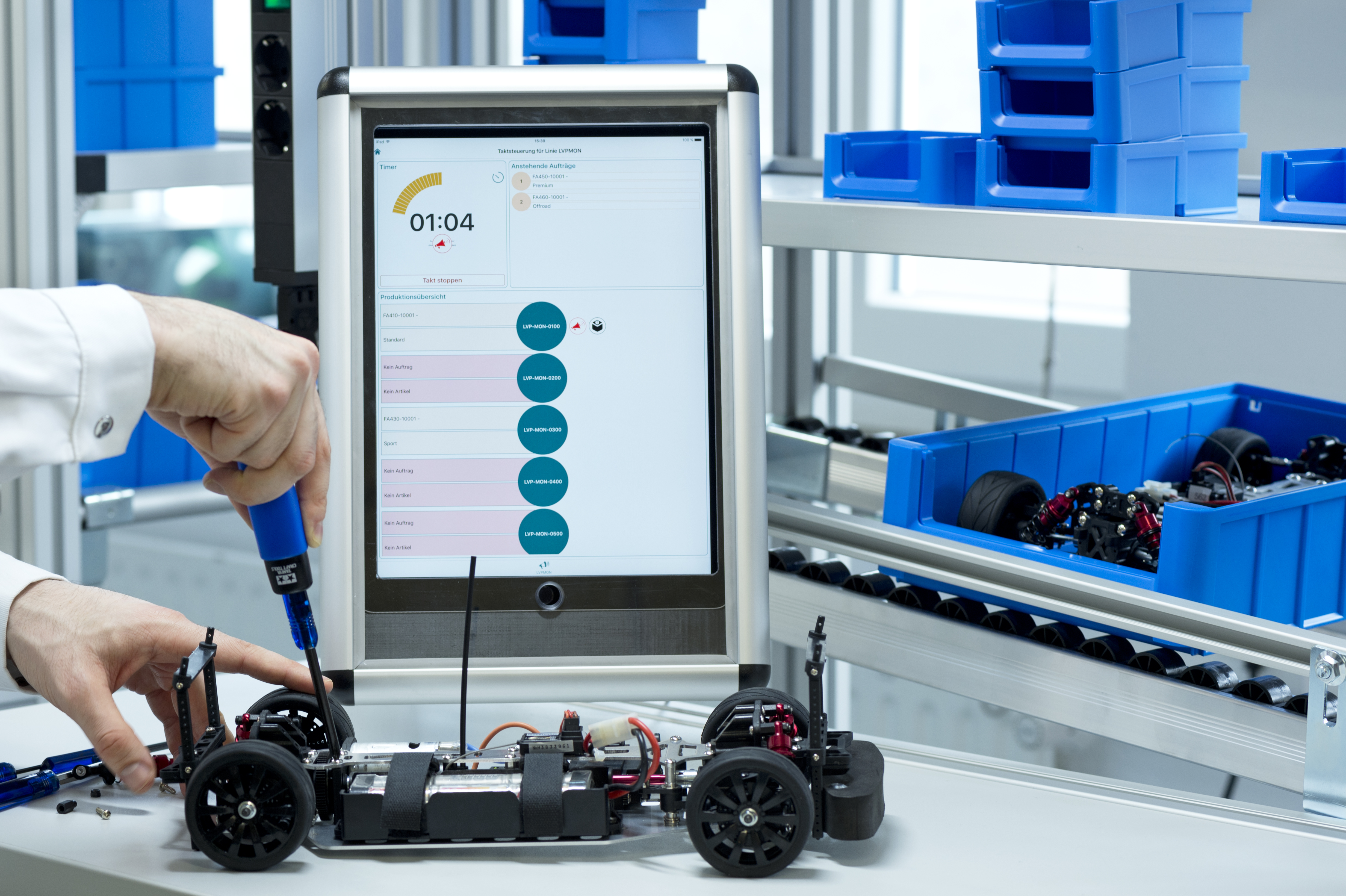With intelligent glasses, bracelets and gloves - so-called wearables - there are numerous technologically innovative possibilities for employee support, this potential must be tapped for production. Faster training of new and unskilled employees, the opportunity to offer remote support services worldwide and to keep older employees in the workforce for a longer time are competitive advantages for Bavarian companies that can be realized with digital assistance systems.
Problem
Due to the growing demand for customer-specific products and increasingly shorter innovation cycles, the number of variants to be controlled is constantly increasing. For tasks in multi-variant production and assembly, the work instructions must cover the variants of products to be produced. Digital work instructions are ideal for individual employee support. In order to accelerate investments in digital assistance systems, a better evaluation of the expected advantages is helpful. Testing different digital assistance systems would help to identify and measure concrete benefits of digital assistance systems. The results could be used as a benchmark for future implementations of digital assistance systems and thus could significantly accelerate decision-making processes.
Objective
The aim of this research project is to develop a method kit for the selection and implementation of application-specific digital assistance systems in multi-variant manufacturing and assembly. This toolkit is intended to enable companies to select and implement the optimal assistance system for their particular application using a structured procedure.
Procedure
In order to meet the objectives, five work packages will be carried out: a requirements analysis (WP 1), the classification of digital assistance systems (WP 2), the development of a skills model (WP 3), the preparation of a guideline for action (WP 4), as well as the implementation on a demonstrator and the evaluation of the project (WP 5).
Results and benefits
In addition to the continuing use of digital assistance systems, a temporary use for training purposes is also conceivable. Digital assistance systems offer advantages for the staff in production too: the quality of the work increases and because of high efficiency, jobs are safe. Trainings guided by digital assistance systems help to expand the skills and knowledge of employees.
The action guide contains recommendations that support the companies of the Bavarian metal and electrical industry in the simple, targeted and cost-effective introduction of digital assistance solutions, among other things with the help of a method building kit.
